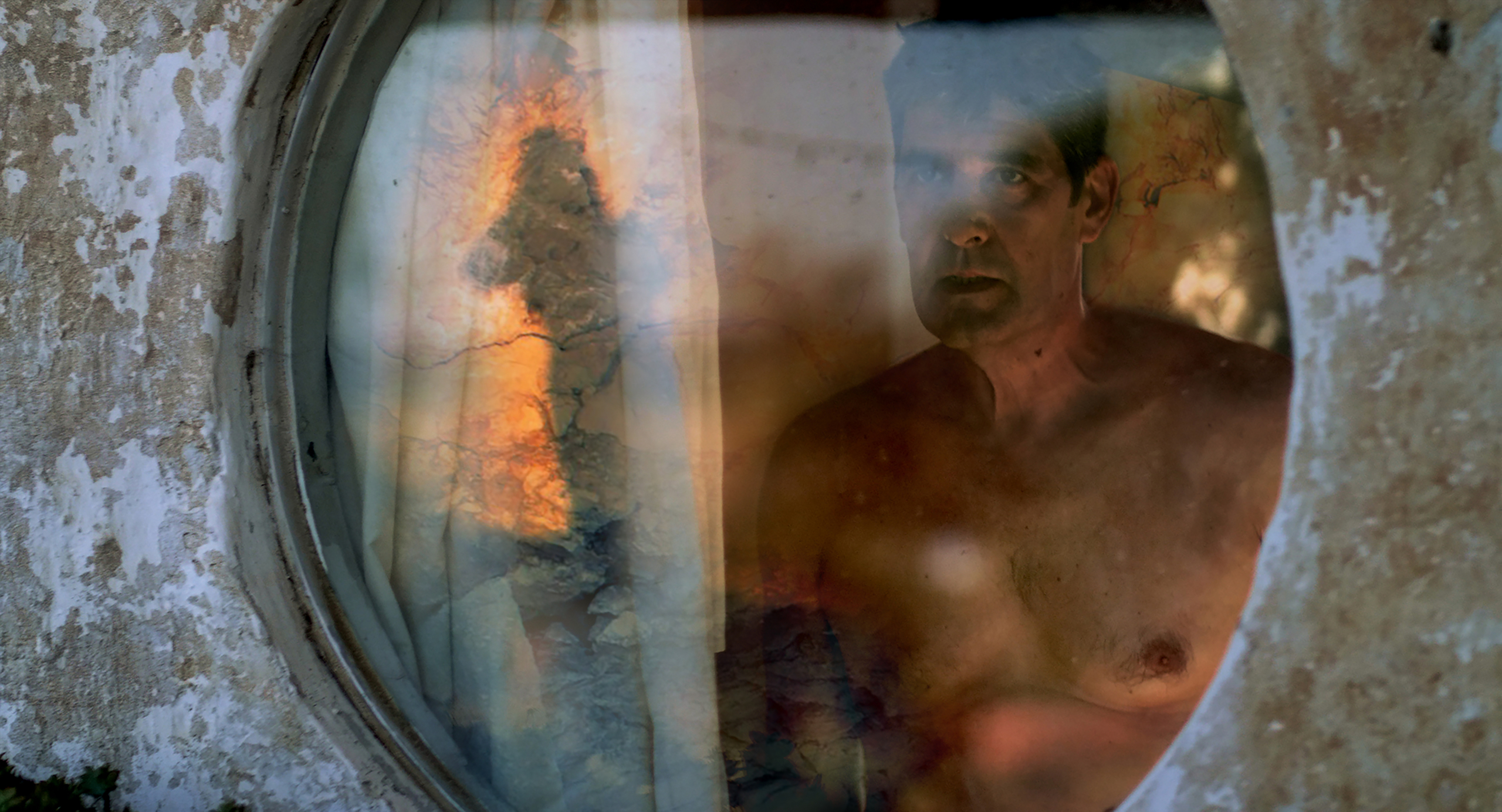Light Falls Vertical is one of those rare works of art, a deeply personal, highly intimate account of a life affected by domestic violence. At the same time, it sheds light on the troubled soul of a perpetrator and not only gives him a stage, but understanding and sympathy.
Filmmaker Ethymia Zymvragaki lets the stories within the film unfold organically. She starts on the island of Crete where she grew up, and which she left to escape the violence she experienced at home. In her new home in Spain she seems to have overcome her trauma, but a totally unexpected request rocks her foundations. Ernesto wants her to make a movie of his life. He introduces himself as a perpetrator of domestic violence. He shows no shame, but a great deal of self-understanding.
Zymvragaki carefully steers her audience and herself through the understandable and (for many) unfamiliar dilemmas this extraordinary appeal provokes. As a filmmaker she of course recognises a very rare opportunity, but as a victim she feels resentment. Also, the memories she had tucked away so neatly are now unleashed and have to be dealt with.
What follows is a poetic (visually as well as orally) document on the process both of filming her subject and her attempt to come to terms with her own trauma.
She offers the desperate man all the space he needs to explain or even portray himself. He is not making any excuses, but methodically describes what happens when he gets aggressive. In the same manner he talks about his youth and his father, who of course was also very violent.
One of the most impressive scenes is when he directs two actors, who play him and his former wife, while they dance together. He hovers around them, giving instructions on the pose and gaze of the male actor: ‘You’re getting angry. You’re hitting her. No, you don’t feel any remorse.’ The two young actors ask him questions, trying and failing to understand his feelings. How could he not feel bad after mistreating your wife, they want to know. But we learn that this lack of ‘normal’ human feelings is exactly why he is now living the way he does. Safely on his own, away from people and with a girlfriend who lives apart but who has strict instructions on when to lock the knife drawer and leave his house without looking back.
The scenes with Ernesto are alternated with cinematographic, atmospheric shots of interiors and of nature – evoking a sense of calm and acceptance. This is life, this is the human state, this is what we have to deal with. It also gives you space to let your thoughts on this delicate process unfold. Through her journey with Ernesto, Zymvragaki is able to look back at what happened to her and to her father, for whom she is now able to feel some compassion.
The film is a completely honest record of this journey, without being forced or artificial. It is sometimes painful to watch, but is also healing and made with so much compassion and understanding, it manages to give evil a human face.
© REPRODUCCIÓN RESERVADA IDFA.NL (Read the original article)



